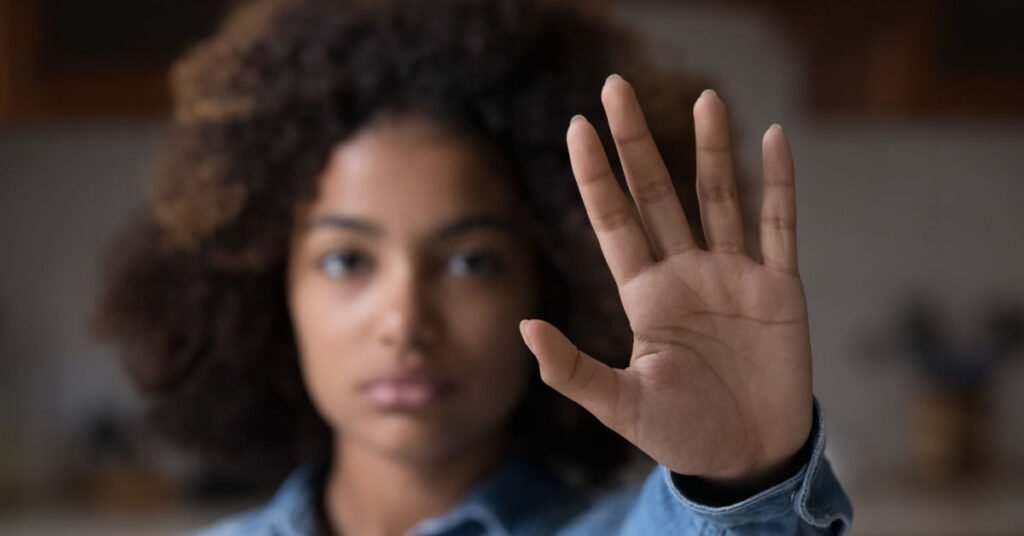Are You a Victim or Know Someone Who Might Be? Know the Signs of Domestic Violence
Domestic violence is a severe and pervasive problem that affects people of all genders, ages, races, and socio-economic backgrounds. It can take many forms, including physical, sexual, emotional, psychological, and financial abuse. The signs of domestic violence can be subtle and difficult to recognize, but it is essential to understand them to prevent harm and support victims.
Here we discuss the actions, traits, and signs of the abuser and the actions, traits, and signs of the victim of abuse.
The Signs of Domestic Violence for The Abuser and The Victim
Actions, Traits, and Signs of The Abuser
Controlling behavior
Abusers often try to control every aspect of their partner’s life, including their thoughts, actions, and relationships with others. For example, they may prevent their partner from seeing friends or family, monitor their phone calls and texts, and dictate their daily activities.
Intimidation
Abusers use fear as a tool to control their partners. For example, they may threaten physical harm, destroy property, or harm pets to intimidate their partner into compliance.
Isolation
Isolating partners from their support networks, such as friends, family, and colleagues, is common among abusers. This makes it difficult for the victim to leave the relationship and seek help.
Blame-Shifting
Abusers often blame their partners for their abusive behavior. They may say that their partner “made them” behave a certain way or claim their partner is responsible for their anger or frustration.
Denial
Denial can be a trait as abusers often deny that their behavior is abusive, minimizing or dismissing the harm they have caused.
Jealousy
Jealousy, possessiveness, and accusing their partner of infidelity without evidence or reason is a typical sign.
Mood Swings
Sudden and unpredictable mood swings, shifting from calm to angry or violent without warning, can be a sign.
Physical Violence
Abusers may use physical violence to control their partner, including hitting, kicking, or choking.
Actions, Traits, and Signs of the Victim of Abuse
Fear
Victims of domestic violence often live in fear of their partner. As a result, they may feel afraid to speak or express their feelings, knowing it could trigger an abusive outburst.
Low Self-Esteem
Victims often have low self-esteem, feeling that they are not worthy of love or respect.
Isolation
Victims may become isolated from their support networks, feeling they cannot confide in anyone about their situation.
Change in Behavior
Behavioral changes such as becoming withdrawn and quiet can be a sign.
Injuries
Unexplained injuries, such as bruises or cuts, should never be taken lightly as this person needs the utmost attention regarding the reasons behind them.
Depression
Victims of domestic violence may experience depression or other mental health issues due to the abuse.
Financial Dependence
Becoming financially dependent on an abuser makes it difficult for the victim to leave the relationship.
Denial
Last but a sign that must be taken seriously is denial. Victims of domestic violence may deny being abused, making it difficult for others to intervene and help them.
Get Help and Contact the Family Law Office of Dalena & Bosch
Domestic violence is a severe problem that affects many people and should never be taken lightly. The signs of domestic violence can be subtle and difficult to recognize, but it is essential to understand them to prevent harm and support victims. By recognizing the actions, traits, and signs of both the abuser and the victim of abuse, we can work towards ending domestic violence and creating a safer, more equitable world for all.
If you or someone you know is experiencing domestic violence, don’t hesitate to contact our family law firm at Dalena & Bosch. Our passionate team will give you the utmost attention and care while addressing your concerns about domestic violence, whether you are a victim or have been wrongly accused.
